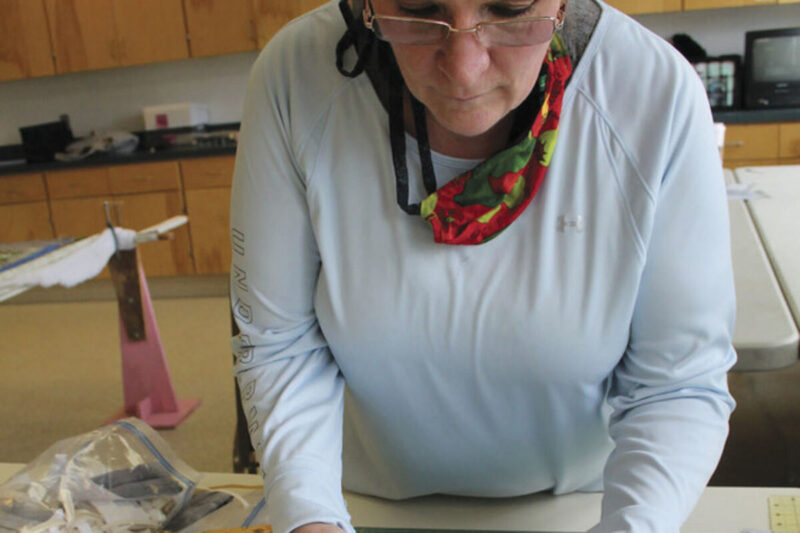Sarah Brown
More people are stepping into the public sphere as Phase 1 of Gov. Kate Brown’s reopening plan for Oregon gains momentum, but if you do, the Jolly Stitchers at the Senior Center have you covered.
Murya Scherer, vice president of the board at the Senior Center and president of the Jolly Stitchers group, started making masks not long after the center’s doors were locked, at the beginning of the COVID-19 shutdown.
Typically, the Jolly Stitchers make quilts for raffles that support the Senior Center, but this year’s work was stalled when COVID-19 forced them into quarantine. Apparently, they were itchin’ for a stitchin’, so they started making masks.
“There was a call for 4,000 adult masks, I believe,” Scherer said.
Seamstresses who have joined the effort include Pam Barbee, Kathy Allen and Shirley Schumacher, of the Jolly Stitchers, as well as Pat Tungett and Fran Bronson, members of the Senior Center. Scherer estimates they’ve made about 300 to 400 adult and children’s masks, so far.
She’s not sure where they’re being distributed, though. When they have extra masks, someone comes and picks them up, she said.
“Our first priority is for our drivers,” Scherer said.
Though Linn Shuttle and Meals on Wheels drivers were previously only encouraged to wear masks, ODOT is now requiring them to be worn.
Scherer has been sewing off and on for the last 30 years.
“Mostly I’ve gotten more into it since I became a member here, in the last five years,” she said. “I’ve gotten more involved in the quilting, and then we got the call for the masks.”
She didn’t like the original patterns she had for making masks because it was too small for her and her husband.
“I had to create my own, and I like the one with ties,” she said.
She learned that people with hearing aids and glasses have trouble wearing masks that hook around the ears. She also prefers adding pleats so they can be stretched to fit faces better, and she adds interfacing in the masks for a little extra protection.
As the need for masks slows down, Scherer finds they are now getting special requests for masks, she said. People request certain mask designs and pick out a pattern more suitable to their taste.
But it hasn’t quite become a personal fashion statement, yet.
“When I go into the grocery store, I see more bandanas and I see more of the face masks that come up from the neck that are more like the exercise pant material,” she said.
Though Scherer does worry about COVID-19, she said, she believes wearing a mask is more an act of respect for others than simply just protection.
“I’m not one of those who says that this (virus) is a bunch of baloney. It’s a very real thing; especially for the senior center, it’s a very, very scary real thing.”
She believes COVID-19 may end up instilling better habits in people that could slow down the annual spread of more common flu viruses, too.
People are being more diligent about hand washing and not touching their face as much, she said. She also believes a majority of people will continue wearing masks for general protection.
For now, she will continue making masks for people. Scherer understands that oftentimes a cough is not covid-related, but wearing a mask makes other people feel safer.
“I don’t want to be told it’s mandatory. I understand it, but I still want to have that choice,” she said. “It should be ‘highly recommended.’ If you choose not to wear it, I’m not going to chastise the person walking down the aisle that doesn’t have a mask on.”





